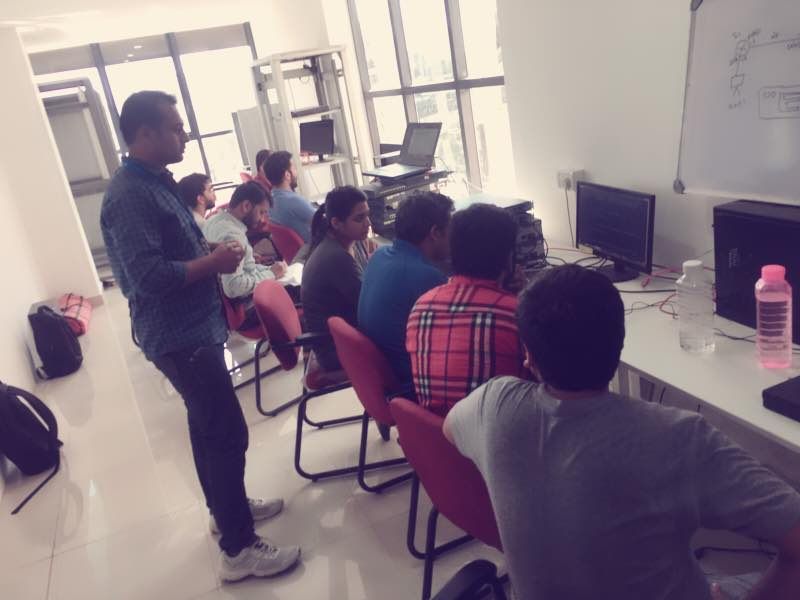System Administration Training by Experts
Our Training Process

System Administration - Syllabus, Fees & Duration
MODULE 1
- System administration introduction, policies, overview, UNIX history and basis
MODULE 2
- File systems and disks
MODULE 3
- Software installation concepts
MODULE 4
- Multi users basics, politics, policies and ethics
MODULE 5
- Automating administrative tasks
MODULE 6
- Networking
MODULE 7
- Backup and disaster recovery
MODULE 8
- DNS
MODULE 9
- SMTP, HTTP
MODULE 10
- Configuration management
MODULE 11
- Distributed computing
MODULE 12
- SNMP, monitoring
MODULE 13
- System security
This syllabus is not final and can be customized as per needs/updates





 Information technology (IT) experts execute the work of systems administration for a company. Students who pursue a diploma in this field have a fantastic opportunity to expand their expertise. You'll also learn how to manage and configure servers, as well as how to manage PCs, user information, and user productivity using industry tools.
They are IT-savvy and can troubleshoot any technical issues that are causing the system to malfunction.
System administration roles are broad and often vary based on the type of computer system being managed, however, the majority of them have some fundamental functions that can be accomplished in a variety of ways.
When signals halt, system administrators alter cables to repair the transmission media. Circuit boards and CPUs are assembled by computer hardware engineers to produce functional mobile or desktop devices.
They are in charge of producing IT policy recommendations for their organization.
They install computers, laptops, intranets, servers, cybersecurity software, and other technology.
To digitally connect clusters of computers, they create local area networks (LANs) and wide-area networks (WANs).
Information technology (IT) experts execute the work of systems administration for a company. Students who pursue a diploma in this field have a fantastic opportunity to expand their expertise. You'll also learn how to manage and configure servers, as well as how to manage PCs, user information, and user productivity using industry tools.
They are IT-savvy and can troubleshoot any technical issues that are causing the system to malfunction.
System administration roles are broad and often vary based on the type of computer system being managed, however, the majority of them have some fundamental functions that can be accomplished in a variety of ways.
When signals halt, system administrators alter cables to repair the transmission media. Circuit boards and CPUs are assembled by computer hardware engineers to produce functional mobile or desktop devices.
They are in charge of producing IT policy recommendations for their organization.
They install computers, laptops, intranets, servers, cybersecurity software, and other technology.
To digitally connect clusters of computers, they create local area networks (LANs) and wide-area networks (WANs).



















































































